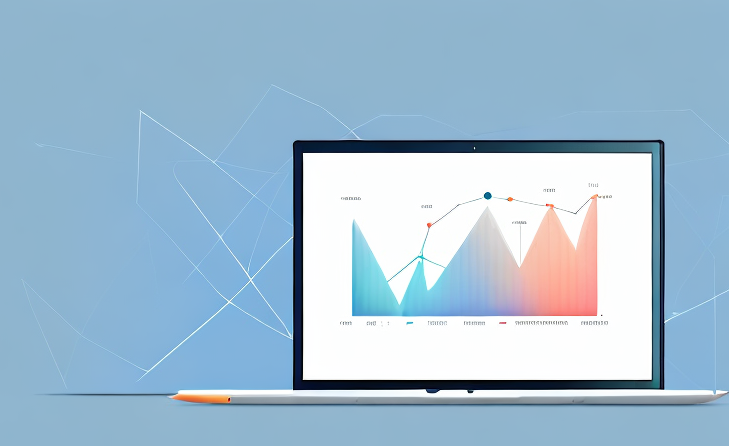Becoming a Data Analyst: Tips and Strategies for Success
21 Jul, 20235
Contents
- Understanding the Role of a Data Analyst
- Key Responsibilities of a Data Analyst
- Skills Required for a Data Analyst
- Industries Where Data Analysts Are in Demand
- Essential Educational Background and Certifications
- Degree Programs for Aspiring Data Analysts
- Popular Certifications in Data Analysis
- Online Courses and Bootcamps for Data Analysts
- Building a Strong Data Analyst Portfolio
- Showcasing Your Data Analysis Skills
- Including Real-World Projects in Your Portfolio
- Presenting Your Work Effectively
- Networking and Finding Data Analyst Job Opportunities
- Joining Data Analyst Communities and Forums
- Attending Industry Conferences and Events
- Utilising Job Boards and Networking Platforms
Becoming a Data Analyst: Tips and Strategies for Success
If you're interested in a career in data analysis, you're in good company. The demand for data analysts is growing rapidly, as more and more businesses recognise the value of data-driven decision-making. But what exactly does a data analyst do, and how can you become one? In this article, we'll cover everything you need to know about becoming a successful data analyst.
Understanding the Role of a Data Analyst
A data analyst is a crucial member of any organisation that deals with large amounts of data. They are responsible for collecting, processing, and performing statistical analyses on large datasets. These analyses are used to identify patterns, trends, and insights that can help businesses make informed decisions. Data analysts also create data visualisations and reports, which are used to communicate their findings to stakeholders and other members of the organisation.
Furthermore, data analysts play a crucial role in ensuring that organisations are making the most out of their data. They help identify opportunities for process improvements and cost savings, which can have a significant impact on the organisation's bottom line.
Key Responsibilities of a Data Analyst
The key responsibilities of a data analyst vary depending on the organisation they work for. However, some common responsibilities include:
- Collecting and processing large datasets: Data analysts are responsible for gathering data from various sources and cleaning and processing it to make it usable for analysis. This requires a strong understanding of data management techniques and tools.
- Performing statistical analyses to identify patterns and trends: Data analysts use statistical techniques to identify patterns and trends in the data. This requires a strong understanding of statistical methods and tools.
- Creating data visualisations and reports to communicate findings: Data analysts use data visualisation tools to create charts, graphs, and other visual representations of the data. These visualisations help stakeholders understand the insights and trends found in the data.
- Identifying opportunities for process improvements and cost savings: Data analysts work with stakeholders across the organisation to identify areas where data can be used to improve processes and reduce costs.
- Working with stakeholders to develop data-driven solutions to business problems: Data analysts work closely with stakeholders to understand their business problems and develop data-driven solutions to address them.
Skills Required for a Data Analyst
To become a successful data analyst, you'll need a variety of technical and soft skills. Some of the key skills include:
- Proficiency in programming languages such as Python and R: Data analysts need to be proficient in programming languages to manipulate and analyse data efficiently.
- Ability to work with large and complex datasets: Data analysts need to be comfortable working with large datasets and be able to manage and manipulate them efficiently.
- Strong analytical skills and attention to detail: Data analysts need to have strong analytical skills and pay close attention to detail to identify patterns and trends in the data.
- Excellent communication skills: Data analysts need to be able to communicate their findings and insights to stakeholders across the organisation effectively.
- Ability to work collaboratively in a team environment: Data analysts often work in teams, and therefore need to be able to collaborate effectively with others.
Industries Where Data Analysts Are in Demand
Data analysts are in demand in a wide range of industries, including:
- Finance and banking: Data analysts in the finance and banking industry are responsible for analysing financial data to identify trends and insights that can help inform investment decisions.
- E-commerce and retail: Data analysts in the e-commerce and retail industry are responsible for analysing customer data to identify trends and insights that can help improve the customer experience and drive sales.
- Healthcare: Data analysts in the healthcare industry are responsible for analysing patient data to identify trends and insights that can help improve patient outcomes and reduce costs.
- Marketing and advertising: Data analysts in the marketing and advertising industry are responsible for analysing customer data to identify trends and insights that can help inform marketing campaigns and improve the customer experience.
- Manufacturing and logistics: Data analysts in the manufacturing and logistics industry are responsible for analysing supply chain data to identify trends and insights that can help improve efficiency and reduce costs.
Essential Educational Background and Certifications
While there's no one "right" educational background for becoming a data analyst, there are a few key degrees and certifications that can help you get started. In this article, we'll explore some of the educational backgrounds and certifications that can help you become a successful data analyst.
Degree Programs for Aspiring Data Analysts
Many data analysts have a bachelor's degree in a related field, such as computer science, mathematics, statistics, or economics. These degrees provide the foundational knowledge and skills needed to succeed in a data analyst role. Additionally, some employers also prefer candidates with a master's degree in a related field. A master's degree can provide more in-depth knowledge and advanced skills in data analysis, making you a more competitive candidate in the job market.
While a degree can be helpful in getting your foot in the door, it's not the only way to become a data analyst. There are many successful data analysts who have gained their skills through other means, such as online courses and bootcamps.
Popular Certifications in Data Analysis
Certifications can be a great way to demonstrate your knowledge and proficiency in data analysis. Some of the most popular certifications include:
- Microsoft Certified: Data Analyst Associate - This certification demonstrates proficiency in using Microsoft Power BI to analyse data and create visualisations.
- Google Analytics Individual Qualification - This certification demonstrates proficiency in using Google Analytics to track website traffic and analyse user behavior.
- Certified Analytics Professional - This certification is offered by the Institute for Operations Research and the Management Sciences (INFORMS) and demonstrates proficiency in all areas of analytics, including data management, modeling, and analysis.
- SAS Certified Data Scientist - This certification demonstrates proficiency in using SAS software to analyse big data.
- Data Science Council of America - Certified Data Analyst - This certification demonstrates proficiency in data analysis and visualisation using tools like Excel, R, and Python.
Online Courses and Bootcamps for Data Analysts
If you're looking to build your skills in data analysis, there are a variety of online courses and bootcamps available. These programs can provide hands-on experience with data analysis tools and techniques, and can be completed at your own pace. Some popular options include:
- DataCamp - DataCamp offers a variety of courses in data analysis, programming, and data science.
- Coursera - Coursera offers courses and specialisations in data analysis, statistics, and machine learning from top universities around the world.
- Udacity - Udacity offers nanodegrees in data analysis and data science, as well as individual courses in statistics, programming, and data visualisation.
- General Assembly - General Assembly offers courses and bootcamps in data analysis, data science, and other related fields.
- edX - edX offers courses and programs in data analysis and statistics from top universities around the world.
Whether you choose to pursue a degree, certification, or online course, there are many paths to becoming a successful data analyst. By gaining the necessary skills and knowledge, you can build a rewarding career in this exciting and growing field.
Building a Strong Data Analyst Portfolio
Building a strong data analyst portfolio is an essential step towards landing your dream job in the field of data analysis. A portfolio can showcase your skills, expertise, and experience in a way that a resume or cover letter cannot. Here are some tips to help you create a portfolio that stands out:
Showcasing Your Data Analysis Skills
Your portfolio should demonstrate your proficiency in data analysis. Be sure to include examples of your data analysis work, including visualisations and statistical analyses. You can showcase your skills by including projects you have worked on in the past or by creating new projects specifically for your portfolio. Your portfolio should also highlight your ability to work with different types of data, such as structured and unstructured data.
It is important to remember that your portfolio should not only showcase your technical skills but also demonstrate your ability to think critically and creatively. You can achieve this by including projects that required you to solve complex problems or projects that involved working with large datasets.
Including Real-World Projects in Your Portfolio
While it is important to showcase your technical skills, including real-world projects in your portfolio can demonstrate your ability to apply your skills in a practical setting. Real-world projects can include projects you have worked on for clients or projects you have worked on as part of a team. These projects can demonstrate your ability to work with others and your ability to apply your skills to solve real-world problems.
Real-world projects can also demonstrate your ability to work with different types of data, such as customer data, financial data, or social media data. Including real-world projects in your portfolio can help you stand out from other candidates and demonstrate your ability to work in a variety of settings.
Presenting Your Work Effectively
Finally, when presenting your portfolio, it is essential to communicate your findings clearly and concisely. Use visual aids and data storytelling techniques to effectively communicate your insights to non-technical stakeholders. This can include creating data visualisations, such as charts, graphs, and infographics, that illustrate your findings.
It is important to remember that your portfolio should be easy to navigate and visually appealing. Use a clean and simple design that highlights your work and makes it easy for potential employers to find the information they need. You can also include a brief description of each project to provide context and help potential employers understand your thought process and problem-solving skills.
In conclusion, building a strong data analyst portfolio is an essential step towards landing your dream job in the field of data analysis. By showcasing your skills, expertise, and experience, you can demonstrate your ability to work with different types of data, solve complex problems, and communicate your findings effectively. With these tips in mind, you can create a portfolio that stands out and helps you land your dream job.
Networking and Finding Data Analyst Job Opportunities
Joining Data Analyst Communities and Forums
Joining online communities and forums can be a great way to network with other data analysts and stay up-to-date on industry trends and best practices. Some popular communities include:
- Kaggle
- Data Science Central
- Analytics Vidhya
- Reddit - r/datascience
- LinkedIn Groups
Attending Industry Conferences and Events
Attending conferences and events can also be a great way to network with other data analysts, learn about new developments in the field, and meet potential employers. Some popular conferences and events include:
- Strata Data Conference
- Data Science Conference
- Analytics Summit
- ODSC - Open Data Science Conference
- Women in Data Science Conference
Utilising Job Boards and Networking Platforms
Be sure to utilise job boards and networking platforms to find data analyst job opportunities.
If you're interested in a career in data analysis, our expert consultants can help you. Please get in touch today to find out more.



